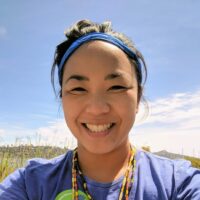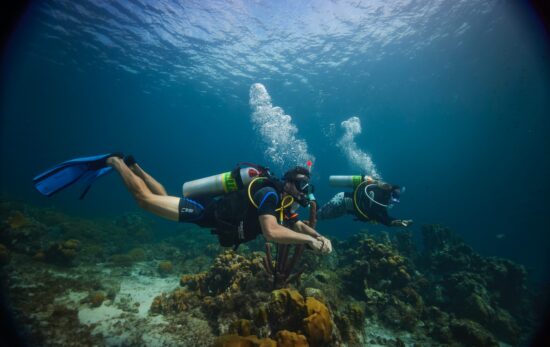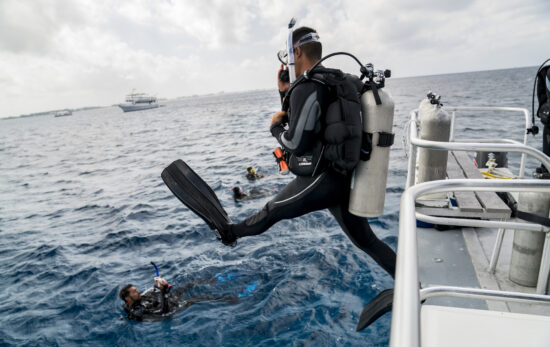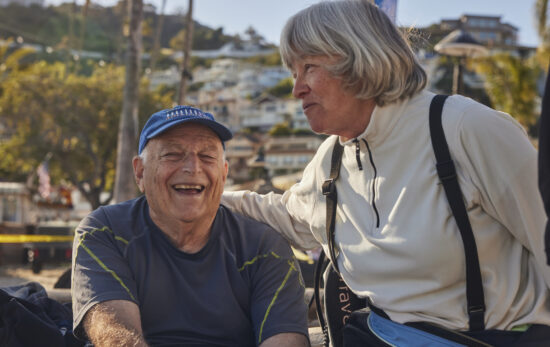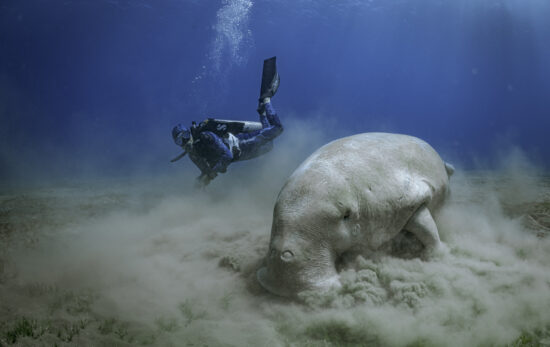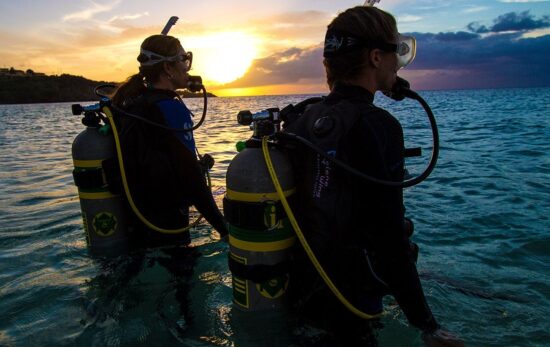Landlocked. That’s probably the last word we’d associate with scuba diving. And yet, within the PADI community, there are PADI Pros from landlocked countries who are diving, thriving and proving this seeming juxtaposition false.
Finding the Happy Life
“I never thought I’d be diving.”
That’s what Assyl Yerbolatova, a PADI Open Water Instructor says. From a “really, really small place – Keldi Murak – near the big city of Almaty, Kazakhstan,” Yerbolatova recalls swimming in a river behind their village when she was growing up.
“We didn’t even know what diving was,” she laughs. “But, my childhood was very active – riding horses, going to the mountains, and swimming in the river.”
“Then, going to the city and sitting in an office, it was mind-blowing. It felt like a prison for me,” she confesses. “I was unhappy all the time.”
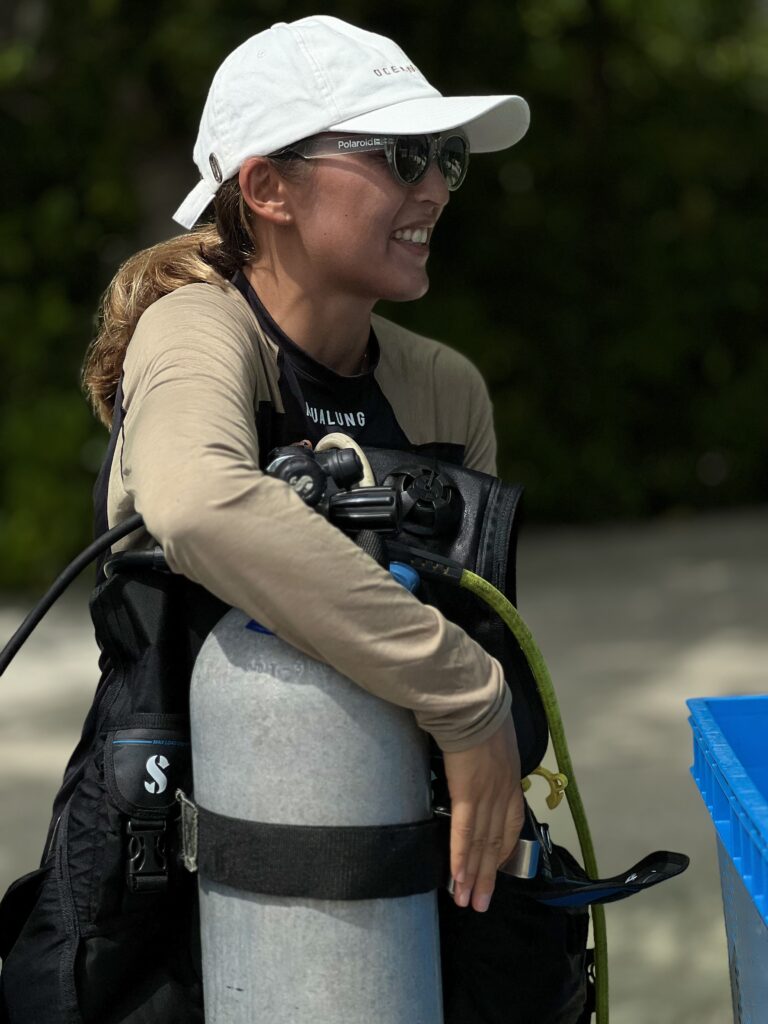
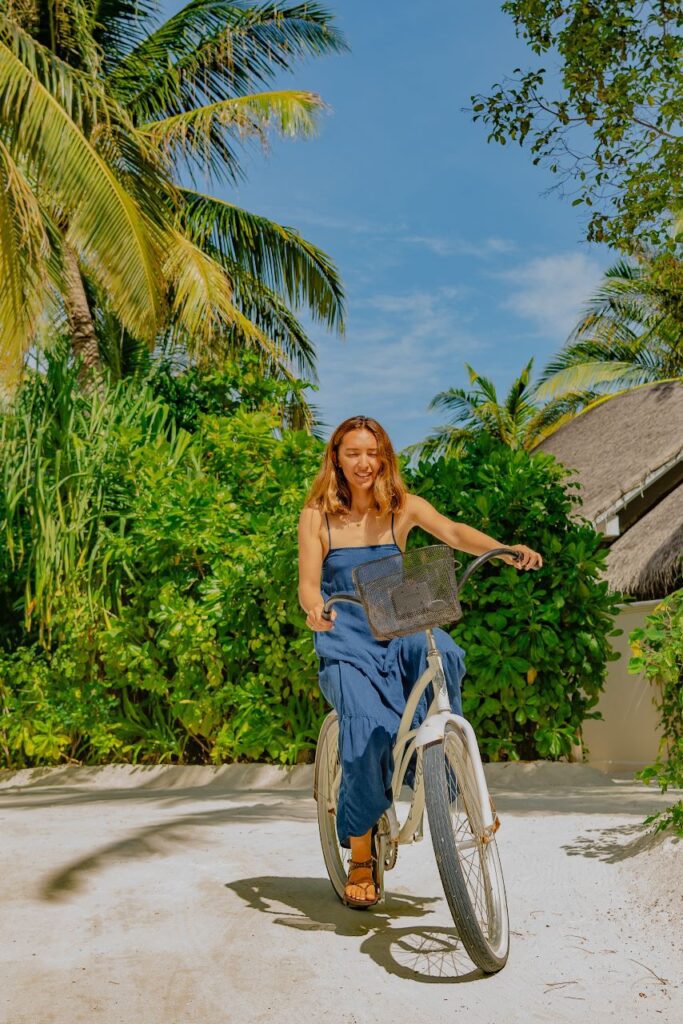
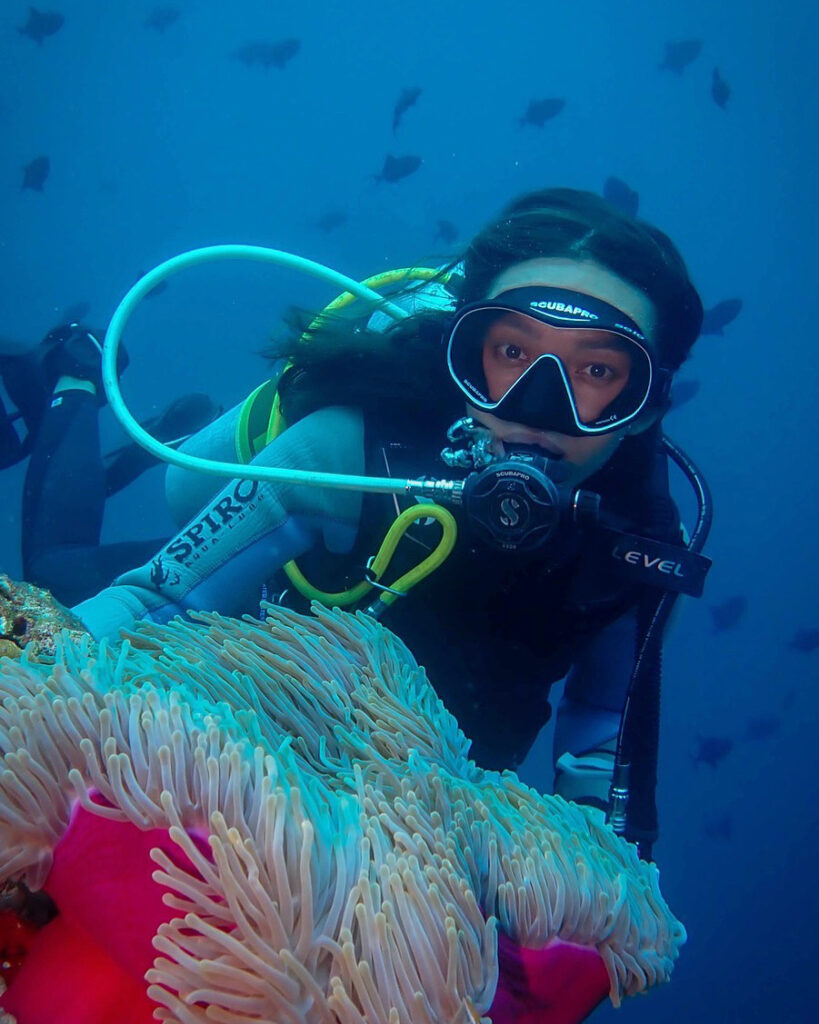
So, Yerbolatova took a giant stride into her life, traveling alone to Thailand, then Qatar, and finally to the Maldives. “Then the happy life started,” she beams. “One month in, my happy life started, because I learned to dive. In one year, I became a diving instructor, and now, it’s been three years.”
She still teaches diving in the Maldives, where “we have everything, really everything” and “the color of the water is amazing.”
Daniela Cornacchia, from Bern, Switzerland, also learned to dive in the Maldives – getting her PADI Open Water Diver Certification through Divemaster while working as a fitness instructor at a resort. When she went to France for her PADI Instructor Development Course, she met Daniel Schmid, who was staffing the IDC, and who is her husband today.
“I loved it immediately,” she says about the sport. “Diving has been a part of my life ever since, personally and professionally.” Currently, she’s a PADI Master Instructor at TSK Dive Center in Bern and Zurich, which she owns with Schmid.
Landlocked Doesn’t Mean Land-Bound
Unlike Yerbolatova, who traveled to dive, many landlocked Pros find ways to dive in their home countries. Therefore, through them, we get a peek into how this sport can change their lives right where someone is.
Stefan Puff-Kopf loved diving from the first moment, he shares. “The silence is incredible,” he says. He’s a Master Scuba Diver Trainer and a co-owner of Tauch AB Dive Center in Götzis, Austria.
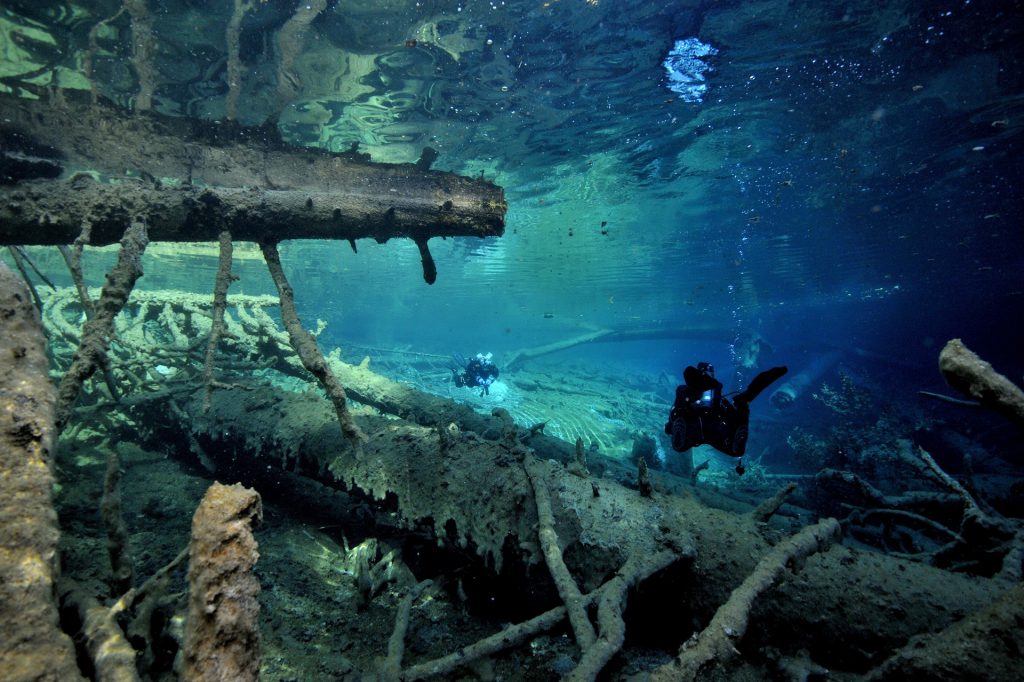

He and co-owner Tobias Hauer both learned to dive in Vorarlberg, where they now teach. Puff-Kopf started diving to stay distracted during a divorce, whereas Hauer began when a friend convinced him to try an Open Water Diver scuba course.
In contrast, Schmid, from Bern, Switzerland, learned to dive as a kid with his dad. “I was lucky…. I grew up diving and this was always an important part of my life,” he says. Now, as a PADI Course Director, and the manager and owner of TSK dive center, he helps thousands of others experience these same joys.
“My big passion is underwater photography,” he adds. “I started way back with an analog camera, but today I am using a top-notch DSLR system. I love the challenge of creating an image underwater that will inspire other people.”
Landlocked Water is Water
So, where do these landlocked PADI Pros dive?
Even though their homes are landlocked, there are still opportunities to dive and explore, they remind us. In fact, diving can provide a new way to explore their homes – through the lakes and rivers. There are plenty of underwater adventures to be had.
Schmid says, “Switzerland offers amazing freshwater diving…. Switzerland’s rivers are some of my favorite dive sites, and I have been diving all around the world.” He urges anyone – even those in landlocked countries – to give it a try. He says, “Don’t wait any longer. Diving is a life-changing experience. In a landlocked country, diving can be exceptional.”
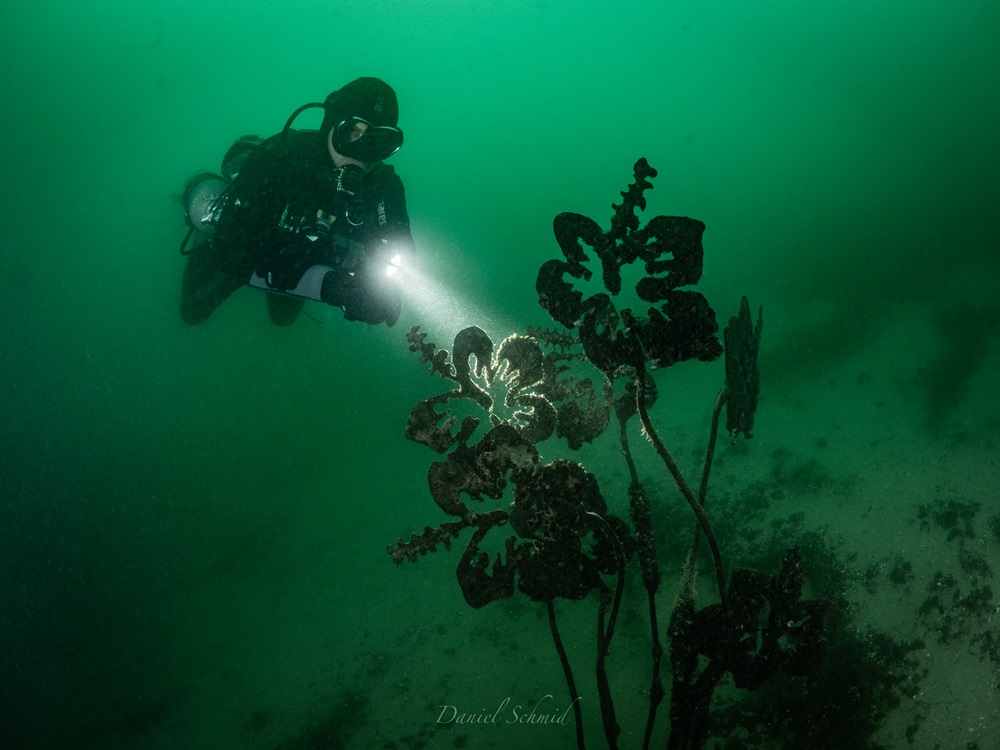
“There are always some new things to discover,” Hauer says of diving in Austria’s fresh water. “It is also possible that the same spot looks different just because of the change of the visibility and light.”
Puff-Kopf adds, “We have a lot of great spots for every [dive] level, pretty close to us.”
Divemaster Jade Roberts, who’s originally from Cape Maclear, Malawi, says her favorite thing about being a PADI Divemaster in her country is “being able to show people that, although it’s freshwater, it’s still interesting.” She adds, “You may not have sharks or corals, but the diversity of species and topography are amazing. It’s very relaxed diving and can be one of the best places to learn.”
The Demand for Freshwater Diving
We asked our landlocked Pros if there’s a demand in their countries and if they know other divers. The answers ranged widely.
“Nobody [else dives],” says Yerbolatova. “In Kazakhstan, we have 20 million people. We have lots of relatives, and we grow up seeing what others do and trying to follow what others do. I didn’t know [until I started diving] that I had my own opinion. Now, I’m living my own life.”
She added, “It gives me confidence, the knowledge that I’m not following everybody. I have my own way. I didn’t get money from the world their way. For me, it’s about following my heart. I’m going that way.”
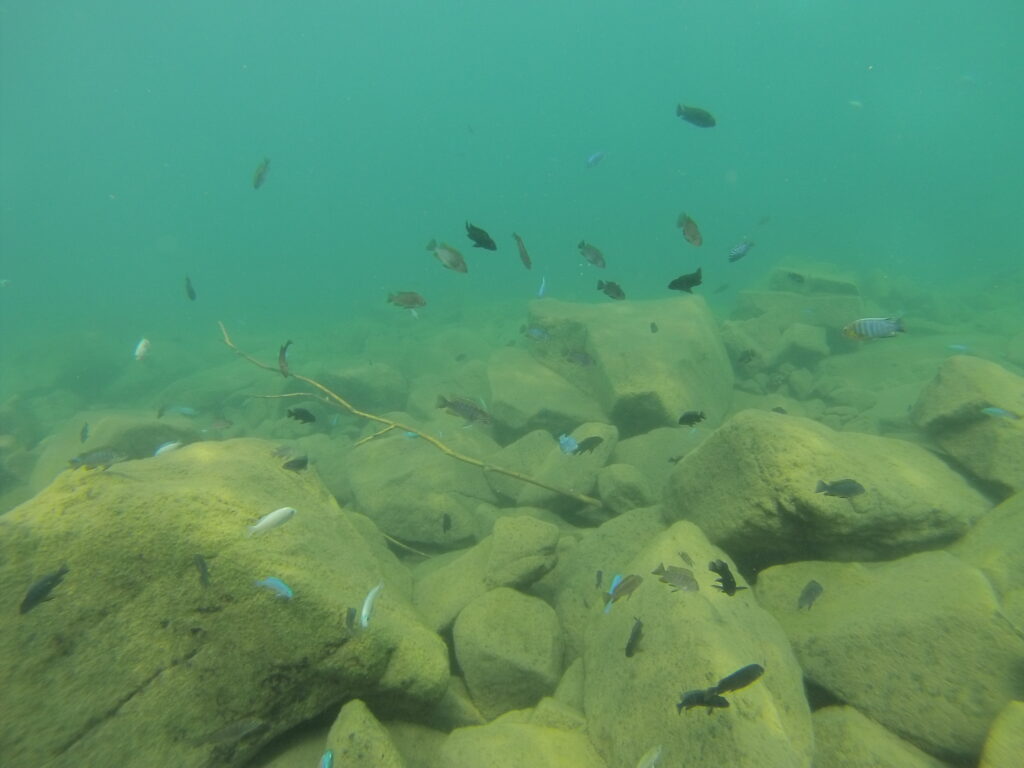
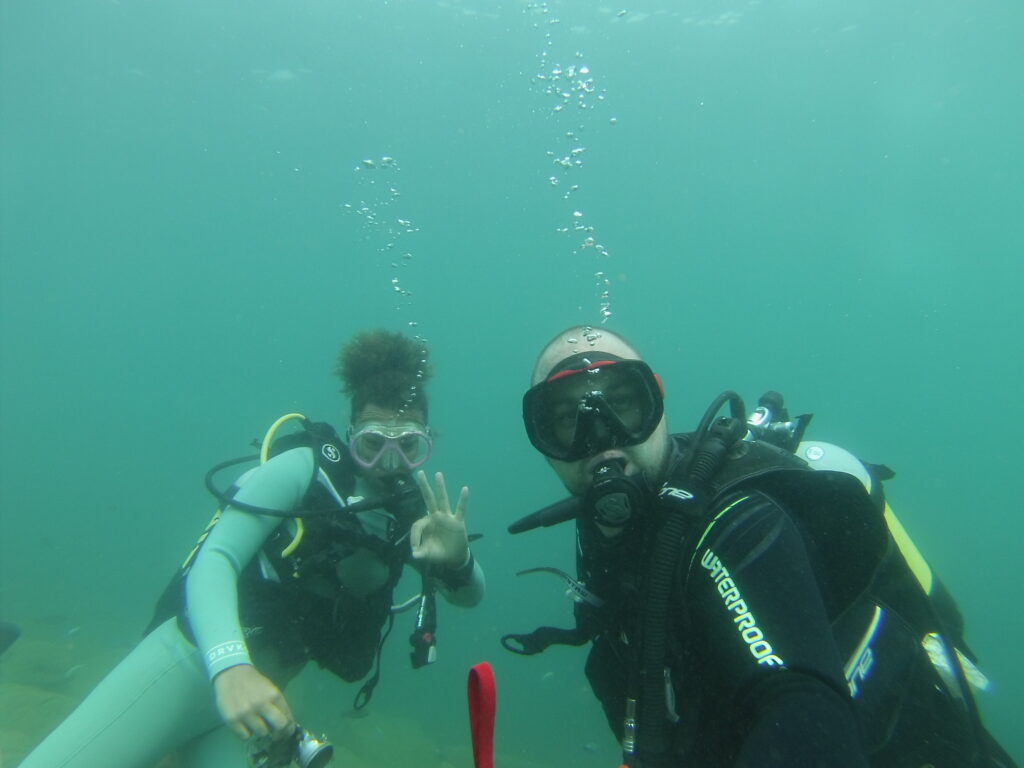
In Malawi, Roberts learned to dive in Cape Maclear as a present from her parents for her 10th birthday. “I had the opportunity to do it even though I was scared,” she confesses. “Once that first open water dive happened, I was hooked and haven’t stopped since.” While there aren’t “lots” of people in her country who dive, there are “a good number who do.”
In contrast, Cornacchia and Schmid report a lot of certified divers in Switzerland. The latter says, “I believe we do have one of the highest densities of certified divers in Switzerland among our population.” Many learned to dive in their home country, the former adds. “It can be surprising,” she says.
Hauer similarly credits Austria’s high number of divers to the large number of lakes around to explore.
Sharing Their Passion
Our landlocked Pros also reiterate how great it is to share this sport with others. All love to show people that it’s still possible to explore and grow as a diver, even if you’re from a landlocked country.
“The best thing about being a Pro is showing others the possibilities that scuba diving gives you and to see them developing,” says Hauer. “[Diving] opens you up to a new world to discover and shows you there is still some kind of adventure possible.”
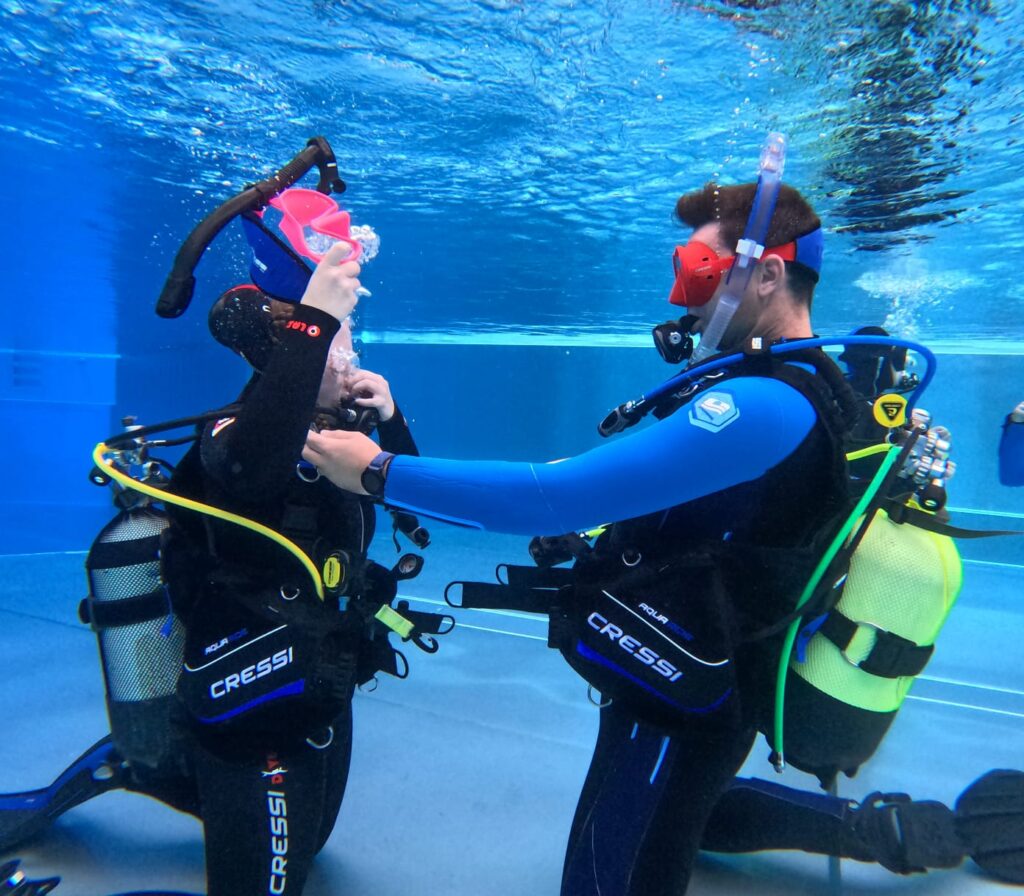
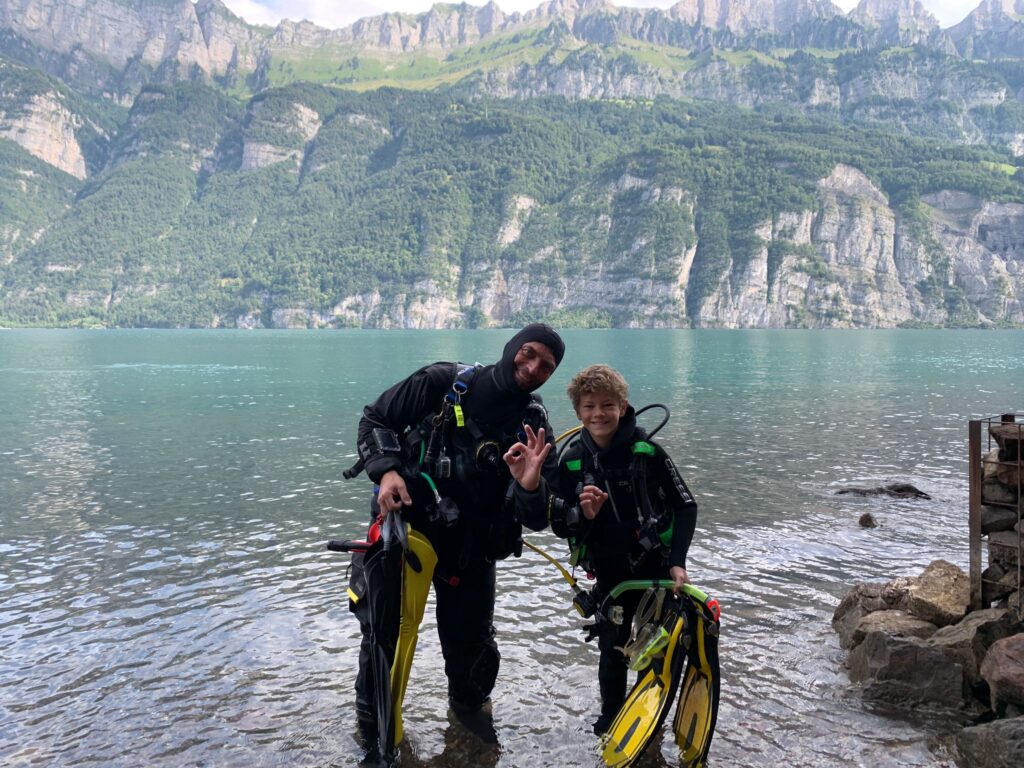
Roberts similarly loves introducing people to the wonders of the underwater world. She fell in love with the peace and tranquility beneath the surface and is glad to give others this experience.
Even Yerbolatova hopes to teach more of her countrymen and women. “Kazakh people learn really easily,” she says. “Even if we don’t have a big open ocean like in the Maldives, we all know how to swim from childhood. Diving would be cool for them.”
She believes that more exposure and practice would help. She explains, “When you play football, when you are good, it becomes more interesting. The same goes for diving. It’d be easy and interesting for them even if they’re ‘land’ people if they put in the time and practice to become good at it.”
Living Their Best Lives
Lastly, of course, our landlocked Pros share how the diving lifestyle, despite or because of where they are originally from, offers them a way to #LiveUnfiltered.
“I feel some purpose now,” says Yerbolatova. The Pro notes how she’s been interviewed because “I’m really doing something interesting here.” Most Kazakh girls get married early and stay home, she shares. They don’t take hard jobs. Therefore, when she returns to her country for the winter, she gets called to TV programs. “These changes are happening because I became a diving instructor,” she says.
Furthermore, Puff-Kopf credits being a PADI Pro with giving him the freedom of self-employment and urges anyone to “hop into the adventure of diving” to enjoy the “freedom underwater.”
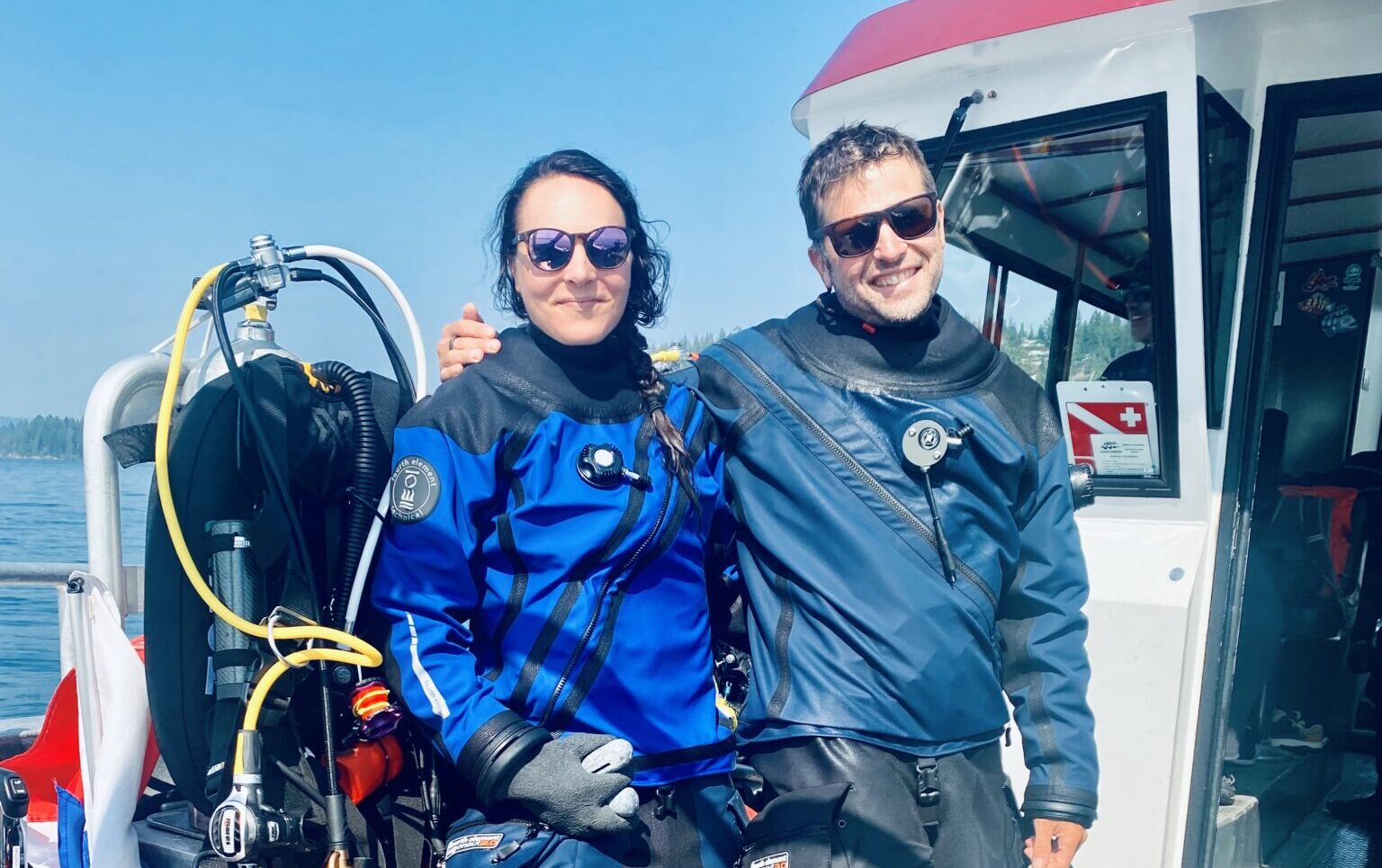
Finally, “[becoming a PADI Pro] has changed my life,” says Schmid. “It is a lifestyle that means everything to me. Living this together with my wife, Daniela, means everything to me.”
Cornacchia adds, “It changed [my life] forever and for the best.”
More Freshwater Adventures
- Freshwater Diving: The 10 Best Dive Sites in the World
- 10 Unbelievable Freshwater Dives
- Lake Malawi: The Lake of Stars
- Top 10 Dive Sites in Austria and Switzerland
- Carinthia, Austria – Diving in Magical Underwater Worlds
- The Austrian Lake Where Hiking and Diving Meet
- PADI Altitude Diver – Diving a Swiss lake
